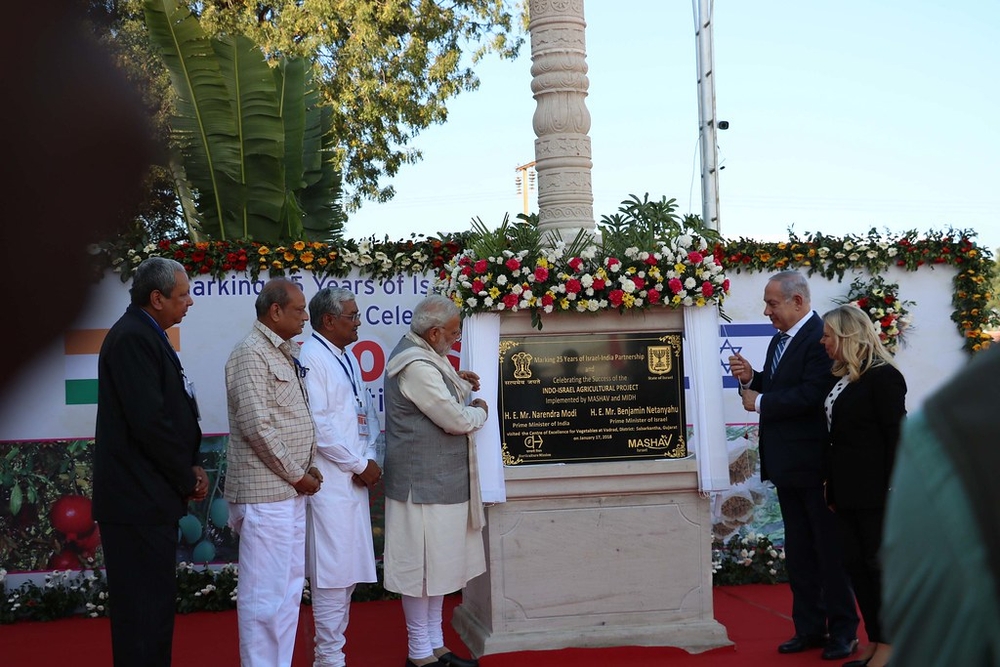Published
- 3 min read
Strategic Partners: Examining the Evolving India-Israel Relationship

India and Israel’s partnership has transformed over the decades from covert defense cooperation to an open, multifaceted strategic alliance. This relationship is not just about bilateral ties; it carries significant implications for regional stability, global geopolitics, and India’s position as a global power.
A Brief History of India-Israel Relations
While India initially refrained from formalizing relations with Israel due to its alignment with the Non-Aligned Movement and support for the Palestinian cause, the dynamics shifted in the early 1990s. The establishment of diplomatic ties in 1992 marked the beginning of a robust partnership. Over time, Israel emerged as a key defense partner for India, supplying critical technology and weapons systems.
Defense and Security Collaboration: The Cornerstone of the Relationship
India is one of Israel’s largest defense clients, acquiring cutting-edge technologies such as UAVs, missile systems, and radar solutions. This collaboration has enhanced India’s military capabilities, particularly in counter-terrorism and surveillance operations.
For Israel, India represents a vital market and a strategic ally in Asia. Joint initiatives, such as the development of the Barak missile system, underscore the mutual benefits of this partnership. The shared emphasis on counter-terrorism has further strengthened ties, with both nations exchanging intelligence and expertise to combat threats.
Economic Ties: Beyond Defense
While defense remains a critical pillar, economic cooperation has expanded significantly. Bilateral trade has grown from $200 million in 1992 to over $10 billion today, encompassing sectors like agriculture, water management, and information technology. Israel’s innovation in water desalination and drip irrigation has been pivotal in addressing India’s water scarcity issues.
Cultural and Educational Exchange
The relationship extends beyond strategic and economic interests. Cultural and educational collaborations have flourished, with increasing student exchanges and research partnerships between Indian and Israeli universities. This people-to-people connection adds a unique dimension to the bilateral relationship.
Balancing the Palestinian Question
India’s growing closeness to Israel has led to questions about its stance on the Palestinian cause. While India continues to support a two-state solution, its abstentions on key votes in international forums highlight a careful balancing act. New Delhi’s approach aims to maintain strategic ties with Israel without alienating its Arab allies or compromising its historical support for Palestinian self-determination.
Regional Implications and Global Impact
India-Israel ties are closely watched by regional and global players. For the United States, this partnership aligns with its strategic goals in the Indo-Pacific. Conversely, nations like Iran and Pakistan view the growing relationship with suspicion, fearing it could disrupt regional power balances.
India’s engagement with Israel also reflects its broader foreign policy shift toward realpolitik, focusing on pragmatic alliances that enhance its national interests.
Challenges and the Road Ahead
Despite the progress, challenges persist. India’s dependence on Israeli defense imports raises concerns about over-reliance. Additionally, balancing its Israel policy with its energy and trade interests in the Gulf Cooperation Council (GCC) countries requires diplomatic finesse.
Looking ahead, the partnership must diversify further into areas like green energy, space exploration, and advanced technologies. Strengthening multilateral cooperation, particularly in global platforms, can also help both nations address shared challenges.
Conclusion
The India-Israel relationship exemplifies how strategic partnerships can evolve to meet the demands of a changing world. Rooted in mutual respect and shared interests, this partnership has become a cornerstone of India’s foreign policy. As both nations navigate an increasingly complex global landscape, their collaboration will likely continue to grow, shaping regional stability and advancing global innovation.
